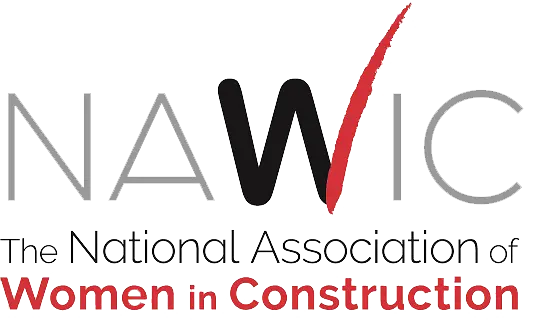Construction accounting offers a career path with a lucrative salary and growth potential for professional women in building.

Think of construction and the trades (carpentry, electrical, welding, etc.) instantly come to mind. Yet the majority of women working in construction are not in the field but in the office. A growing number of professional women in building include construction accountants like NAWIC President Karen Hager.
An industry veteran, Hager has spent more than 3 decades in construction accounting. Her first introduction to the field was working as a cashier and later the cash office of a home improvement store during college. From there, she moved on to an HVAC company that was just starting to computerize their accounting processes. “This was an excellent opportunity to get into construction accounting from the ground up,” she says. “That was the beginning of a 30-year career with that company which took me from Accounts Payable Clerk to Controller/Network Manager. Now, 8 years after leaving that employer, I am with an architectural firm I love, doing what I do best.”
About construction accounting
With an average national annual pay of nearly $75,000 and plenty of available jobs, construction accounting offers women a career path with growth potential.
“Construction accounting is different from general contractor to subcontractor, to site development, to architecture and engineering. Each has their own way to track costs and revenues. That variety is what I love about it,” says Hager. “It keeps you interested and motivated to learn more.”
Construction accounting is more complicated than accounting in many other fields. The unpredictable nature of project-based work affects cash flow and costs. Multiple vendors, retainage (where a portion of the payment may be held until the project is complete), and erratic work schedules add to the complexity. An in-depth knowledge of the industry is vital for construction accountants to track profitability and help manage finances.
Education
A construction accounting career requires general accounting knowledge (such as a bachelor’s degree in accounting or finance) and a thorough understanding of industry-specific accounting concepts. Because the industry is constantly changing (new rules and regulations, technologies, software, etc.), there is always more to learn.
Certification programs help construction accountants build their knowledge and skills beyond that of a generalist. For example, the NAWIC Education Foundation (NEF) offers a Construction Bookkeeping Certification that covers general ledgers, payables, receivables, job costs, payroll, and how to organize a bookkeeping system for a construction firm. Obtaining the Certified Construction Industry Financial Professional (CCIFP) credential from the Construction Financial Management Association (CFMA) is another way accountants can validate their expertise and strengthening their credibility in the field. “NAWIC has partnerships with industry associations, like the CFMA, that can introduce construction accountants to another source of information and networking,” says Hager.
Inspiring professional women in building
Professional women in building rely on the power of networking and mentorship to advance their careers, too. “NAWIC offers women the opportunity to network with others in the industry and to learn from those, like me, who have been doing what they do for a long time,” says Hager. “I can now say, I have been working longer than some NAWIC members have been alive and the knowledge and experience I, and others, have to offer our members is invaluable.”
The National Association of Women in Construction provides all women in construction with support, networking and mentorship, leadership training, and educational opportunities. NAWIC has more than 6,100 members in 118 chapters across the US, and affiliates across the globe. Contact a chapter near you to learn more.


